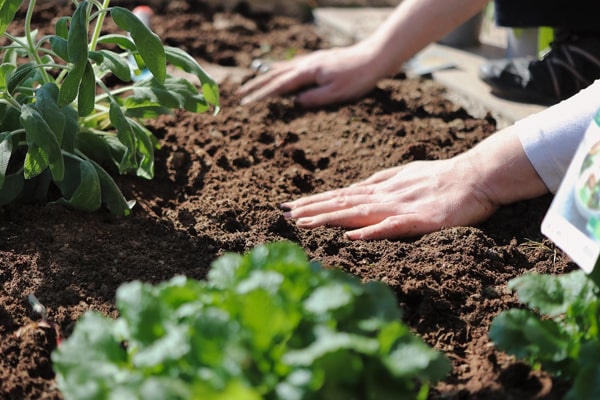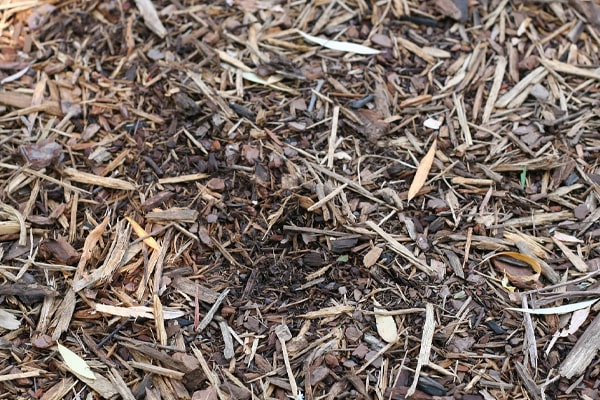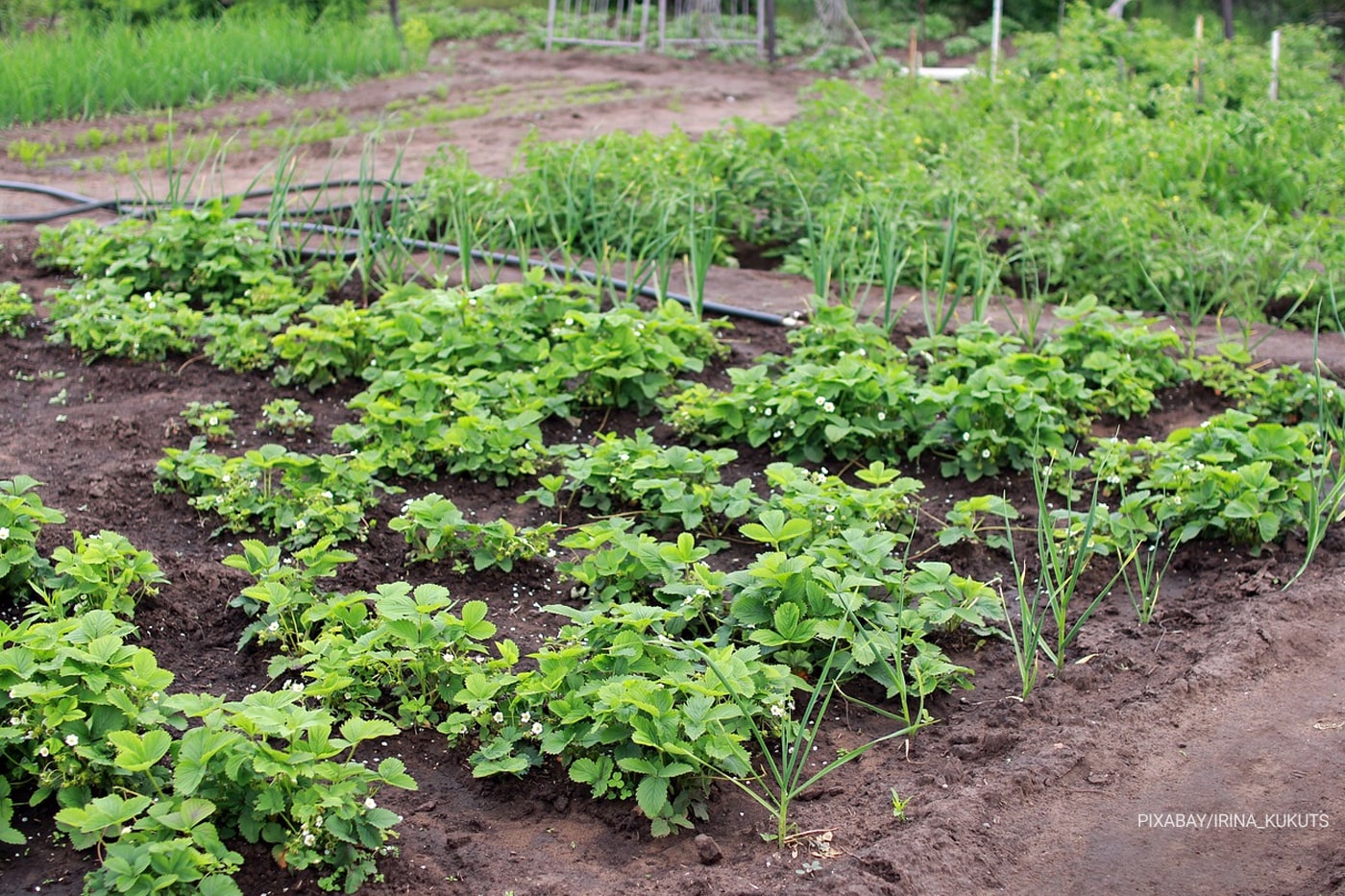Growing chemical-free produce is about cultivating fruits and vegetables without relying on artificial substances like pesticides or synthetic fertilizers. It’s a back-to-basics approach to farming that prioritizes the health of both people and the environment.
By eliminating harmful chemicals from the growing process, you ensure that the food on your plate is free from potentially harmful residues.
This method emphasizes natural alternatives, such as compost and organic pest control, to nurture the soil and protect plants.
Going chemical-free allows the garden to flourish in a more balanced and sustainable way. Embracing this approach not only contributes to your well-being but also promotes a healthier planet by minimizing the ecological impact of conventional farming practices.
Contents []
When is the best time to plant my organic vegetable garden?
Timing is essential for successful organic gardening, ensuring plants have the right conditions to grow and thrive. The best time to plant your organic vegetable garden depends on your local climate.
Generally, wait until the risk of frost has passed and the soil is workable. In spring, when temperatures are consistently mild, it is ideal for most regions. Some vegetables prefer warmer soil and can be planted later in spring.
Check your local frost dates and seed packets for specific guidance. For a fall harvest, plant cool-season crops in late summer.
How do I keep pests and critters from snacking on my organic vegetable garden?
To protect your organic vegetable garden from pests, use these natural methods:
- Introduce beneficial insects like ladybugs and spiders.
- Plant companion crops that deter pests.
- Create physical barriers like row covers to shield plants.
Mulch around vegetables or use landscape fabric to discourage weeds and pests. Regularly inspect plants for signs of infestation, and handpick pests when possible. Use natural repellents like neem oil or garlic spray. Encourage biodiversity in your garden to attract predators.
By practicing these organic pest control methods, you can keep critters at bay while maintaining the health and balance of your vegetable garden.
6 Steps to Growing Chemical-Free Produce

Growing chemical-free produce is a rewarding journey that promotes healthier food and a more sustainable environment. By following a few simple steps, you can cultivate your fruits and vegetables without relying on synthetic chemicals.
Choose the Right Plants
Choosing the right plants for your garden is essential to growing chemical-free produce. Start by selecting varieties that are well-adapted to your local climate and soil conditions. Below are plants that are known to thrive in an organic garden:
- Tomatoes are versatile and thrive in organic gardens. They require sunlight and well-drained soil. Tomatoes will also benefit from compost for optimal growth. Choose disease-resistant varieties for healthier plants.
- Lettuce, kale, and cabbage are just some of the many green leafy vegetables that thrive organically. These vegetables prefer cool temperatures and nutrient-rich soil. Harvest outer leaves for a continuous supply of fresh, organic greens.
- Herbs like basil, mint, and rosemary are excellent choices for organic gardens. They add flavor to dishes, deter pests, and can be grown in containers or directly in the ground.
- Bell peppers thrive in organic settings. Plant them in well-drained soil with compost, provide sunlight, and enjoy a colorful harvest of sweet peppers.
- Beans, such as green or snap varieties, are nitrogen-fixing plants that enrich the soil.
- Carrots are root vegetables that grow well in organic soil. Loose, well-drained soil is ideal for straight, healthy carrot roots. Mulching helps retain moisture.
- Cucumbers are easy to grow organically. Provide support for climbing varieties, use compost, and practice natural pest control for a productive cucumber harvest.
- Radishes are quick-growing and suitable for organic gardening. They prefer loose soil and are a great addition to salads and snacks.
Native plants or those that have adapted to your region over time are often more resilient and better equipped to thrive without synthetic chemicals. Additionally, consider disease-resistant plant varieties to minimize the risk of pests and diseases affecting your crops.
Build Healthy Soil

Nutrient-rich soil is essential for the success of your chemical-free garden. Incorporate organic matter into the soil. Some of the best chemical-free soil boosters we recommend are:
- Compost: nutrient-rich, organic matter made from decomposed kitchen scraps, yard waste, and plant material. It enhances soil structure, provides essential nutrients, and encourages microbial activity in the soil.
- Well-rotted animal manure, such as cow or chicken manure, is an excellent source of nitrogen, phosphorus, and potassium. It improves soil fertility and adds organic matter to promote healthy plant growth.
- Bone meal: a slow-release fertilizer made from ground animal bones. It is rich in phosphorus, supporting root development, flower, and fruit production in plants.
- Fish emulsion: a liquid fertilizer made from fish byproducts. It provides a quick dose of nitrogen, phosphorus, and potassium, promoting robust plant growth and green foliage.
- Seaweed soil conditioner: Seaweed or kelp-based fertilizers offer a blend of essential nutrients, trace minerals, and growth hormones. They enhance plant resilience, stimulate root development, and improve overall plant health.
- Use humic acid, a natural soil conditioner that boosts soil nutrients. Besides improving plant health, humic acids promote root growth and healthy foliage.
- Blood Meal: a nitrogen-rich fertilizer derived from dried animal blood. It promotes vigorous vegetative growth in plants and is particularly beneficial for nitrogen-demanding crops.
Building healthy soil contributes to the overall well-being of your plants, making them more resilient to pests and diseases. Avoid using synthetic fertilizers, as they can disrupt the natural balance of the soil and harm beneficial microorganisms.
Natural Pest Control
Natural pest control methods are crucial for managing unwanted insects in your garden without using chemical pesticides.
Beneficial insects, like ladybugs, predatory beetles, and spiders, can be your allies in keeping pest populations in check. Introduce these beneficial insects to your garden or plant companion plants, such as basil or marigolds, which naturally deter pests.
Creating a balanced ecosystem with natural predators and deterrents helps control pests without harming the environment or compromising the health of your plants.
Watering and Mulching

Efficient watering practices play a significant role in maintaining a chemical-free garden. Provide consistent moisture to your plants without overwatering, as excess water can lead to diseases.
Consider using drip irrigation systems or watering at the base of plants to minimize water contact with leaves, reducing the risk of fungal diseases.
Apply organic mulch, such as straw or leaves around your plants to retain moisture, suppress weeds, and regulate soil temperature. Mulching also helps conserve water, prevent the need for synthetic herbicides, and create a healthier environment for your plants.
Crop Rotation
Crop rotation is a preventive measure to manage soil-borne diseases and pests. Changing the location of your crops annually disrupts the life cycles of harmful organisms, reducing the risk of infestations.
Regularly observe your garden for signs of pests or diseases. Handpick pests, such as caterpillars or beetles, to prevent them from causing widespread damage. Adjust the arrangement of your plants or introduce natural deterrents based on your observations.
Being proactive and attentive to your garden’s needs allows you to address issues quickly to prevent diseases and pests from spreading.
Educate Yourself
Stay informed about organic and sustainable gardening practices.
- Attend workshops, read books, and connect with local gardening communities to share experiences and learn from others.
- Explore permaculture, a design approach that mimics natural ecosystems. Permaculture principles focus on creating self-sustaining, harmonious systems that require minimal intervention.
- Growing chemical-free produce requires patience and observation. Take the time to notice changes in your plants and soil. By understanding your garden’s natural cycles and needs, you can respond effectively without resorting to chemicals.
- Foster biodiversity in your garden by welcoming a variety of plants and beneficial insects. A diverse ecosystem is more resilient to pests and diseases, promoting a healthier balance in your garden.
- Set up a composting system for kitchen scraps and garden waste. Compost enriches the soil with valuable nutrients, reducing the need for synthetic fertilizers. It’s a sustainable way to recycle organic materials and nourish your garden.
- Harvest your fruits and vegetables when they are at their peak ripeness. This ensures the best flavor while contributing to the plant’s overall health. Proper harvesting encourages continuous production and minimizes stress on the plant.
By following these steps, you can cultivate a thriving, chemical-free garden that provides delicious and nutritious produce. Going chemical-free also contributes to a healthier planet. Embracing natural practices in your gardening journey is a step towards a more sustainable and environmentally friendly approach to food cultivation.



